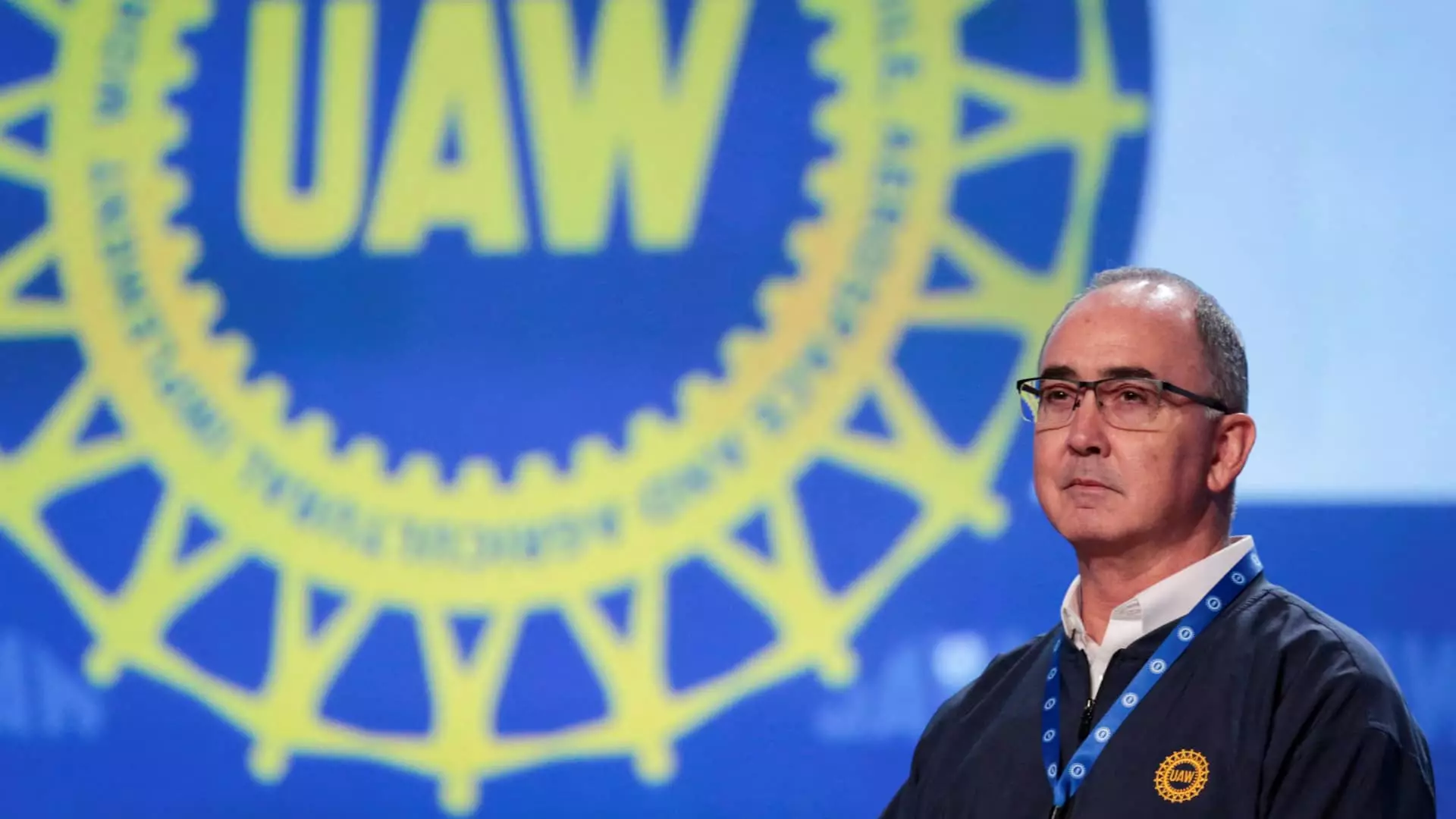United Auto Workers President Shawn Fain didn’t hold back in his recent video, accusing Stellantis CEO Carlos Tavares of engaging in price gouging and failing to uphold certain parts of the union’s labor contract. Fain’s criticism of Tavares goes beyond mere disagreements, painting a grim picture of the company’s leadership and practices.
One of the most damning accusations made by Fain is that Stellantis has been selling fewer cars but making more profits. This contradiction raises concerns about potential price gouging practices within the company. Fain asserts that this exploitation of consumers for profit has ultimately led to a decline in sales, indicating that customers may be growing wary of Stellantis’s business tactics.
In addition to questioning the company’s business ethics, Fain also highlights Stellantis’s failure to honor parts of the worker contract. Specifically, the decision to halt plans to reopen an assembly plant in Illinois directly contradicts commitments made in the previous labor agreement. This disregard for the agreed-upon terms not only impacts the workers directly but also speaks to a broader issue of accountability within the company.
On the other side of the contentious exchange, CEO Carlos Tavares has defended the company’s actions, citing quality issues at certain plants and the need for operational improvements. Tavares’s cost-cutting mission, part of the “Dare Forward 2030” plan, aims to increase profits and revenue significantly over the next decade. However, this strategy has come at the cost of significant job reductions, with thousands of employees being laid off as part of the restructuring efforts.
The reduction in headcount, as well as the reorganization of supply chains and operations, has had a profound impact on the company’s workforce and overall productivity. Executives have characterized the restructuring process as grueling and, in some cases, excessive. The ongoing layoffs and cutbacks raise questions about the long-term sustainability of these cost-saving measures and their effects on employee morale and company culture.
The escalating tensions between the UAW and Stellantis reflect broader issues within the automotive industry, where profitability and cost-cutting often come at the expense of workers and ethical business practices. As the back-and-forth between Fain and Tavares continues, it becomes evident that fundamental differences in values and priorities are at play. Ultimately, the outcome of this conflict will not only impact the future of Stellantis but also serve as a case study for the broader implications of profit-driven decision-making in corporate environments.



Leave a Reply